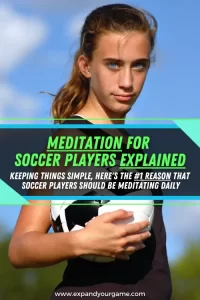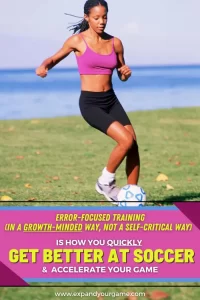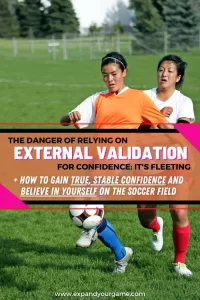I’m a big Phil Jackson fan, and after finding out that George was the mindfulness coach that Jackson had working with Michael Jordan and Kobe Bryant, I added Mumford’s book to my to-read list. I knew before even reading it that I would like this book (I mean, I love everything dealing with mental performance & mindset), but I did not imagine how MUCH I would like it.
The Mindful Athlete is extremely well-written, personable and relatable. Mumford talks a lot about his personal journey with mindfulness and how he has translated what he has learned, over to help athletes. This is a book about the “inner game”, getting into the Zone and being fully present in everything that you do. The main idea of the book is that athletes can use mindfulness to better understand themselves, elevate their game and elevate their life.
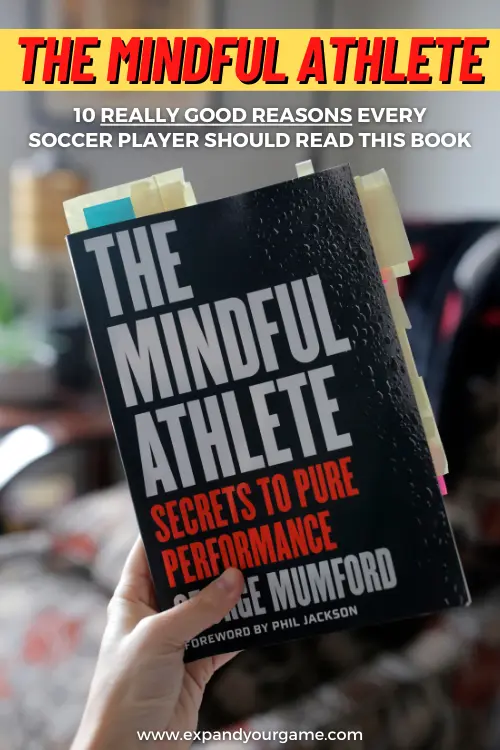
This Post Contains:
Reason #1: This book teaches you the importance of being present
"The mind can free us up or trip us up. If your mind is filled with thoughts or emotions, you step out of flow. Whether you're playing football or a piano concert, if you start thinking about a fight you had with a friend earlier in the day, or you worry about who's sitting in the audience watching you, you'll probably miss a beat or lose your groove. If someone is talking to you but you're hearing without listening, you'll miss the communication and lose your connection."
George Mumford, The Mindful Athlete
In the book, Mumford makes the point that “The minute your mind is elsewhere, the present moment is gone.” This is where developing mindfulness skills, such as meditation, visualization and deep-breathing, come into play. These are the skills that will help you keep your mind fully focused on the present. These are the skills that fill help you focus in soccer games.
Being fully present is HARD. Which is why learning mindfulness skills need to be a high priority for soccer players. This book teaches the basics of those skills, but more importantly, The Mindful Athlete also gives you purpose behind exactly WHY you need to learn them, which makes taking on the project much easier.
Reason #2: This book shows you how to get into the 'zone'
"We're all interested in the secrets of the Zone experience because it's the ultimate experience of optimal performance in sports. It's also, by the way, a key to eureka moments and breakthroughs in the arts and sciences. And it's a pathway to happiness and a glimpse into something much bigger and far more expansive than ourselves."
George Mumford, The Mindful Athlete
Reason #3: This book talks about how to stay composed under pressure
"We get so swept up in what's happening around us, notably all the reactive chatter in our minds, in our emotions, and in our bodies that we lose touch with the present moment and disconnect from that quiet place within. When we lose touch with that center space, we open ourselves up to every possible form of stress and tension. Think about a hurricane: If you stay in the center, you're fine. The skies are blue. You can think straight, make clear decisions, and respond intelligently and effectively. The minute you step away from that center....."
George Mumford, The Mindful Athlete
Reason #4: This book explains how your mind-body connection affects your self-confidence
"The player of the inner game comes to value the art of related concentration above all other skills; he discovers a true basis for self-confidence; and he learns that the secret to winning any game lies in not trying too hard."
Tim Gallwey, The Inner Game of Tennis
Getting out of our own way and getting away from the self-sabotaging behaviors that keep us small – that’s how you start to work towards finding balance for your “inner game”.
Reason #5: This book makes it crystal clear that you can't get hung up on mistakes
"If you missed a play, it's over. You can't dwell on your frustration unless you want to carry that frustration with you into the next play and trip yourself up with that impediment. Think about it: That past play is gone and the future play has not happened."
George Mumford, The Mindful Athlete
Reason #6: This book explains why you shouldn't focus on outcomes
"I'm fond of telling players that the best way to score is to forget about scoring. Focusing too much on the end result - or focusing on anything that takes you out of the fullness of the present moment - is misplaced focus."
George Mumford, The Mindful Athlete
Grow your confidence through preparedness.
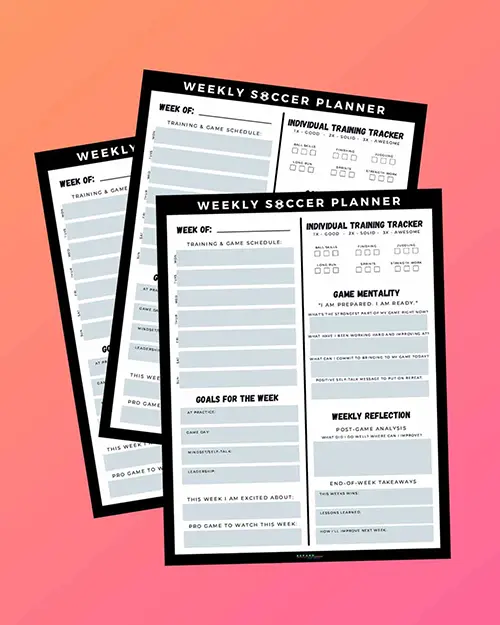
Subscribe to our email list to
Get your FREE Weekly Soccer Planner!
We respect your privacy. Unsubscribe anytime.
Reason #7: This book deep dives into DELIBERATE PRACTICE and why it's the key to fine-tuning your game
Mumford writes “Deliberate means that something is done consciously and intentionally. Deliberate practice involves focusing on and practicing one specific thing that you want to improve in your game – and practicing it with intention and concentration.” You want the ONE SPECIFIC THING to be so ingrained in you that it becomes second nature, to the point that you don’t even have to think about it, it just happens.
"High performance is less about physical attributes and more about what you bring to the table when you commit to deliberate practice."
George Mumford, The Mindful Athlete
There’s no defensiveness or need to make excuses about what you did or did not do, there’s only objective observations about how you are practicing – and a GENUINE, REAL CURIOSITY from yourself about how you can improve. Investigating, learning and correcting, with no judgement.
Reason #8: This book is frank about saying that how you SEE YOURSELF, creates your reality
"I'm constantly amazed at the number of athletes I work with who are exceptionally skilled and highly talented, but who don't play that way because they don't see themselves that way. They don't have a clear sense of purpose or understand that how they see themselves creates their reality."
George Mumford, The Mindful Athlete
Reason #9: This book will convince you to leave your comfort zone
"In order to truly thrive, you have to know your mind and body. To pursue excellence and wisdom, you've got to continually move out of your comfort zone and persistently push the envelope with intention; you have to visualize the goal that matches this intention while you do this; and you have to establish your intention and believe it, see it, and then move forward incrementally to manifest the goal, setting your own standards rather than following the herd."
George Mumford, The Mindful Athlete
Reason #10: This book will have you rethinking setbacks
Mumford says “It’s been my experience with all the athletes I’ve worked with, from the Lakers and the Bulls, to girls soccer teams, to weekend warriors, that while there are always calamities, extreme circumstances can make you stronger.”
"Hard knocks are blessings in disguise; they are an opportunity to think and to learn."
George Mumford, The Mindful Athlete
In The Mindful Athlete, Mumford describes having a strong sense of self-efficacy as “the ability to tell yourself that no matter what happens, you will take everything as a challenge, not a curse. You’ll rise to the occasion and say, “Okay, the going is touch but this is going to be great!”
The Mindful Athlete is GOLD for soccer players
"When you are in the 'Zone', there is no room for any negative self-talk or distracting chatter. Instead you are flooded with consciousness and are fully and wholly concentrated on the here and now. This is the experience every athlete has when he or she is fully in the 'Zone'. Sometimes we call this "being on fire." All distractions are burned away. This is pure performance at its best. This, ultimately, is the path of the mindful athlete."
George Mumford, The Mindful Athlete

Hi everyone! I’m Jenn and I create content to help female soccer players and coaches maximize individual and team potential by developing healthy mindset skills. Join other subscribers and sign up for the newsletter for all my best tips and advice!
We respect your privacy. Unsubscribe anytime.


